
Posts Tagged ‘paz’
The salvation of beauty
Harmony and peace have a profound relationship, just look at what countries look like before and after wars, just look at cities and even rivers and forests in a war zone.
just look at what countries look like before and after wars, just look at cities and even rivers and forests in a war zone.
It’s not a question of locking up regions of the planet, through climate and environmental change the impact on all of creation is immediate, because even if we want to live in a bubble, contact with the air, water and riches is impossible to notice.
This also applies to culture and politics. Everything seems to be a reflection of the mistreatment and lack of sensitivity to what is truly beautiful and in harmony.
For Hegel, according to his vision of aesthetics and therefore of beauty, it is science that deals with artistic beauty and not natural beauty. For him, natural beauty is the product of the spirit (Geist), and, being its product, it is part of the truth and of everything that is in nature.
Sculpture is considered a “noble” art, says Hegel: “Sculpture introduces God himself into the objectivity of the external world; thanks to it, individuality manifests itself externally through its spiritual side” (Hegel, 1996, p. 113), again the exterior is objective, a sculpture and not a Being, the other and with him all his subjectivity.
Symbolism, on the other hand, is what “seeks to achieve the union between inner meaning and outer form, that classical art achieved this union in the representation of the substantial individuality that addresses our sensibility, and that romantic art, spiritual by essence, surpassed it” (Hegel, 1996, p. 340).
For the German-Korean philosopher Byung-Chul Han, who wrote Die Errettung des Schönen (The Salvation of Beauty), a new thread runs through the question of beauty, with what he has called in other books the “lack of negativity of our age”.
We are in the age of plastic, glass and the smooth, “imperfection” is part of creation and so it is not the Greek beauty, the new forms that contemporary culture seeks, that we will find a new culture and a creative way of relating to nature.
Subjectivity is confusingly smooth, without interiority and difficulties (Chul-Han’s palliative society), it submits to a simplism that wants to smooth and polish everything, therapies to overcome fear, anguish, even religious worship is repetitive and pure “indoctrination”, readings without any hermeneutics and full of old and outdated exegesis, just as lectures should entertain and not teach, means of communication are confused with their ends (which is para-communication).
Contact with the beauty of nature is changed by its “domination”, “exploitation” and then an attempt is made to restore it by “purifying” the natural with cement, stone and violence, Han gives as an example the art of Jeff Koon, (see photo above) of the art of Jeff Koon (see photo above) of plastic figures “idealized from the inside and the form on the outside.
Han, B.C. (2015) Die Errettung des Schönen (A salvação do Belo), DE: Fischer Verlag.
Hegel, George W. (2001) Cursos de estética. Brazil, São Paulo: Edusp.
Mitigated war and distant peace
Both the Gaza Strip and Ukraine are being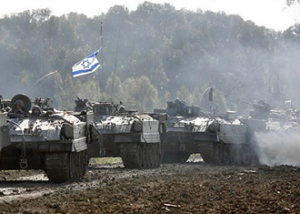 mitigated, the two main wars and the most threatening of a total war. The expectation of peace from the Trump administration has not materialized, what he wants is a Roman pax, that is, the rule of the vanquished.
mitigated, the two main wars and the most threatening of a total war. The expectation of peace from the Trump administration has not materialized, what he wants is a Roman pax, that is, the rule of the vanquished.
The current US government is negotiating rare earths with Ukraine in exchange for equipment. These earths are expensive and are used both in camera lenses and telescopes, for greater visual precision, and in oil refining, in a process called cracking.
Ukraine’s president, Volodymyr Zelensky, said on Friday (February 7) that he was willing to make this deal in exchange for support for the war. The region near the Dnipro River is rich in this ore, and reveals the true interests of the war, in addition to Ukraine’s strong grain production.
In the Gaza Strip there was another prisoner exchange, on Saturday (February 9) three people kidnapped by Hamas were exchanged for 183 Palestinian prisoners. The return of the Israelis didn’t end the drama, because when they arrived they discovered that their relatives had been killed in the October 7 attack that started the conflict.
Trump’s plan for Israel, however, is the domination of the Gaza Strip region, where the Palestinians consider their territory, was hailed by Netanyahu as “revolutionary”, while for the Palestinians it means the continuation of the conflict and the constant threat within their borders.
On Sunday (02/09) the complete withdrawal of Israeli troops was announced the complete withdrawal of Israeli troops from the so-called Netzarim corridor, which divided the Gaza Strip in two, allowing displacement from south to north (photo).
Trump is pursuing a policy of taxation, a veritable trade war, saying he will announce tariffs of 25% on aluminum and steel imported by the country today, the decision affects Brazil, the Ministry of Development, Industry, Trade and Services (MDIC) said it will not comment.
The US withdrawal from the WHO (World Health Organization) was also announced, followed by Argentina. Trump accuses the Organization of diverting funds to other purposes and using these funds politically, contrary to American interests.
Trade with China and Russia has also been shaken. Yesterday, the Baltic countries of Estonia, Latvia and Lithuania completed the migration of Russia’s electricity grid to the European Union system, ending Soviet-era ties and seeking greater security for the countries.
The scenario is one of war mitigation and could escalate at any moment, but the hope of building a sustainable peace has not been abandoned, and forces in the Arab world and Europe are still seeking diplomatic solutions to these brutal wars.
Economic interests are at stake, above political ones. Tempers are out of control not only in the countries at war, but everywhere there is polarization.
The return to serenity, the awareness that in war everyone loses, and those who lose the most.
Urgent: the Islamist group accused Israel of violating the ceasefire by attacking civilians trying to return to the north of the Gaza Strip and Israel put its forces on high alert.
Nationalism, fear and war
It’s not the first time in history that fear has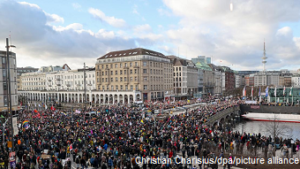 taken hold of society, various mental illnesses such as depression and panic disorder have appeared, and societies seem to be closing in on each other, much to everyone’s surprise. Germany, always so far ahead, has seen the advance of the AfD (Alternative for Germany), which is the return of the ultra-right.
taken hold of society, various mental illnesses such as depression and panic disorder have appeared, and societies seem to be closing in on each other, much to everyone’s surprise. Germany, always so far ahead, has seen the advance of the AfD (Alternative for Germany), which is the return of the ultra-right.
The problem of immigration in Germany has now come to the fore, under the protest slogan “we are the cordon sanitaire”, when it happened an anti-immigration motion and a narrow vote on the Migration Flow Act, criticized the candidate for German Federal Chancellor, Friedrich Merz, of the Christian Democratic Union (CDU), led to demonstrations across the country.
The candidate is the front-runner to take over the German government in the February 23 election, although he is conservative and distances himself from the AfD’s ultra-conservative pretensions.
The significance of these movements, laws and the growth of increasingly conservative positions is a reaction to the sense of the crumbling of the civilizational roots of the various societies and a growing movement of moral and political deterioration of social institutions.
This is not a comfort zone, but a “safety zone” in the face of the ever-present threat of an unprecedented civilizational crisis, and without an element of peace and hope that can mitigate these processes of unrestrained changes in customs.
Fear is when the moral reserves of hope and faith in the future shrink, both on a personal and social level. Young people who prefer to shut themselves away and stay “hidden” at home are a reflection of this “safety zone”, while those who go out abandon any limits.
In addition to combating extremism, the forces of peace must also sow peace and hope and reduce frontal attacks on extremism, which only strengthen it.
Not being afraid is also an important ingredient in these “battles”, showing serenity and calmness in the face of adverse situations helps to minimize the effects of intimidation and harassment that characterize extremist forces, they feed on fear and violence.
The true nuclei of hope are inclusive, they are not motivated by provocations or narratives that defend their positions as the only true ones, it is not about relativism, but about enlightenment and deactivating the fear that characterizes the most closed societies.
Only peace between peoples can guarantee the hope of a healthier and more fraternal world for all.
Provisional peace in Israel and difficult in Ukraine
They continue in the footsteps of the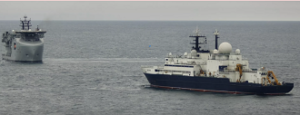 Hamas/Israel agreement, on Thursday (01/30), 8 hostages were released, 3 Israelis and 5 Thais, in exchange for 110 Palestinian prisoners. Hamas will release the list of the total number of hostages, but Israel continues to attack Hezbollah positions in Lebanon.
Hamas/Israel agreement, on Thursday (01/30), 8 hostages were released, 3 Israelis and 5 Thais, in exchange for 110 Palestinian prisoners. Hamas will release the list of the total number of hostages, but Israel continues to attack Hezbollah positions in Lebanon.
The press has released few details about peace in Ukraine. It is known that there are movements behind the scenes, and that part of the agreement would be the return of Russian gas to Europe, after penalizing the Russian economy with sanctions, and the supply of gas is one of them, with the recent blockade of the passage of Russian gas through the war territory.
Keith Kellogg, Trump’s envoy to negotiate peace between Ukraine and Russia, said in an interview on Friday (01/31) that the end of the war could happen in months.
There, the tactic has been to bomb Russian refineries inside Russian territory, while Russia destroys Ukraine’s energy sources, remembering that gas is also used in Europe for heating and we are in the middle of winter.
On the diplomatic front, Russia maintains influence in neighboring countries such as Georgia, Serbia (not without protests) and unstable Bulgaria. According to former EU Commissioner Mariya Gabriel, due to corruption, she should have been prime minister, but Dimitar Glavchev took over as interim.
It is unlikely that an agreement will be possible without Ukraine ceding part of its territory to Russia, and the hidden issue in the agreements is the growing provocations, now with Russian ships carrying atomic cargo approaching Norway (photo), which is a NATO member. Although the ship has maintained maritime rules, there is suspicion about its true functions, such as placing equipment that can cut maritime communication cables on the ocean floor.
There are behind-the-scenes conversations; the Trump administration is committed to achieving peace while at the same time continuing to send ammunition to Ukraine, which has begun to attack Russian territory and made the war more intense and escalating.
In last week’s posts, we highlighted the functions of language, and it is no longer neutral language; even international mediating forces are forced to make decisions between the parties in dispute; voices for true peace are muffled in the name of partial narratives.
A fragile peace
Despite the ceasefire, Israel and Hamas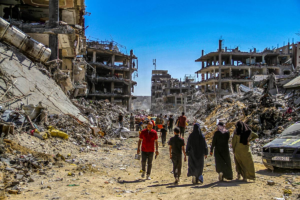 continue to exchange accusations of violating the agreement. Meanwhile, Hamas freed four female Israeli soldiers who were being held hostage (according to the Israeli government there will be 6) on Saturday 25/01, while Israel freed 200 Palestinians, 120 of whom, according to the Israeli press, are terrorists who have beheaded civilians or carried out other atrocities.
continue to exchange accusations of violating the agreement. Meanwhile, Hamas freed four female Israeli soldiers who were being held hostage (according to the Israeli government there will be 6) on Saturday 25/01, while Israel freed 200 Palestinians, 120 of whom, according to the Israeli press, are terrorists who have beheaded civilians or carried out other atrocities.
Israel has also been withdrawing part of its army from northern Gaza, but Hamas’ accusations are still preventing Palestinians from returning to the region (photo).
Ukraine is in a similar situation, where Russian soldiers are shooting at civilians who are trying to return to their homes, thus Russia is extending its occupation in eastern Ukraine, territories close to Donesk that Russia controls and claims ownership of.
Russia, according to Putin’s statement, sees the end of the war as favorable, but the situation is fragile because Russia has recruited another 150,000 soldiers, surpassing the mark of 1 million active soldiers, which is seen as disproportionate to the war in Ukraine, which has difficulties recruiting new soldiers and has an army of around 600,000.
While Trump’s new US government is talking about an immediate end to the war in Ukraine, suspicions are growing in Europe that Russia is creating conflicts in other regions of NATO, which has no more than 90,000 active military personnel, but each country has its own national army and military budgets are increasing in almost all of Europe.
In the Second World War, it should be remembered that the US only entered the war after the Japanese attack on Pearl Harbor (September 7, 1941), 2 years after the start of the war (September 1 and 2, 1939) when Germany invaded Poland.
The deportation of illegal immigrants in the US, Trump’s campaign promise, hit a new snag when Colombia rejected the extradition of their compatriots, and generated an immediate diplomatic conflict between the two countries, with economic barriers set up by the US, which were removed in the early hours of this morning (27/01) after acceptance by the deportees.
Venezuela’s borders also continue to be militarized, including with Brazil, which is not only bad for peace, but also for democracy, because the military power is growing.
The hope for peace cannot be naïve and deny the current war panorama. We need to disarm and recover the civil rights that are under threat in every corner of the planet.
Difficulties and possible peace
On Sunday morning, Israel again bombed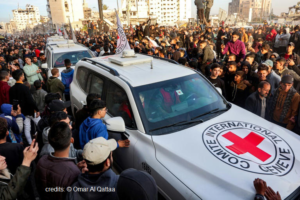 the north of the Gaza Strip, killing 8 people, due to the delay in handing over the list of hostages, Hamas admitted the delay “for technical reasons” but ratified the agreement, and issued the note: “As part of the prisoner exchange agreement, we decided to release today: Romi Gonen, 24, Emily Damari, 28, and Doron Shtanbar Khair, 31,” said Abu Obeida, Hamas spokesman.
the north of the Gaza Strip, killing 8 people, due to the delay in handing over the list of hostages, Hamas admitted the delay “for technical reasons” but ratified the agreement, and issued the note: “As part of the prisoner exchange agreement, we decided to release today: Romi Gonen, 24, Emily Damari, 28, and Doron Shtanbar Khair, 31,” said Abu Obeida, Hamas spokesman.
The three hostages released will be accompanied by IDF (army) and ISA (security) forces on their return to Israeli territory, where they will undergo an initial medical evaluation.” The hostages were held for 471 days.
The hostages were handed over to the Red Cross (photo) and sent to Israel. There are still two more stages before the agreement is fulfilled, according to several experts (such as Rubens de Siqueira Duarte, a professor in the Postgraduate Program in Military Sciences at the Army’s Command and Staff School in Brazil) it is an important step, but peace is still uncertain.
The stages are important because the path of (historical) mistrust must be overcome carefully and with goodwill on both sides, and we are now waiting for the prisoners who are Hamas militants to be released.
On the other dangerous front in Eastern Europe, Trump’s inauguration today, and the war weariness that is already present on both sides, could hasten a ceasefire, where the forces involved may prove more resistant, because they involve territorial issues that are difficult to negotiate (Russia already dominates 30% of Ukrainian territory, which only has the Kursk region taken from the Russians).
It is believed that Trump should stop supporting Ukraine and then it would be forced, in his nationalist logic that they should get involved in “America first” issues, but threats to Greenland and Canada are unacceptable for world peace.
Any agreement must also, as in the Hamas/Israel case, have bilateral concessions.
Peace is desirable, the ceasefire is a step, but to be lasting it must have fundamental aspects of peoples’ rights and humanitarian conditions respected.
Urgent: Israeli cabinet approves peace agreement
Israel’s cabinet of ministers has voted in favor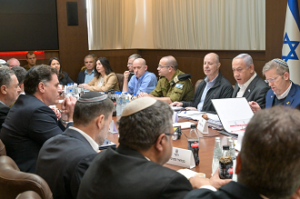 of a ceasefire that will come into effect on Sunday, will initially last 42 days, provides for the phased return of hostages and Israel’s gradual withdrawal from the Gaza Strip.
of a ceasefire that will come into effect on Sunday, will initially last 42 days, provides for the phased return of hostages and Israel’s gradual withdrawal from the Gaza Strip.
According to the Times of Israel, 24 ministers voted in favor, while eight voted against approval, Communications Minister Shlomo Karhi did not attend, the note says: “the government approved the framework for the return of hostages”.
Qatari Prime Minister Sheik Mohammed bin Abdulraham al Thani, who mediated the agreement, stated the “need for both parties to commit to the implementation of all phases of the agreement” to avoid “civilian bloodshed”, the details of the second and third phases will be known after the implementation of the first phase.
May this peace spread to other regions in conflict and serious threats from imperial forces.
Peace or truce in the Middle East ?
A peace agreement has been celebrated in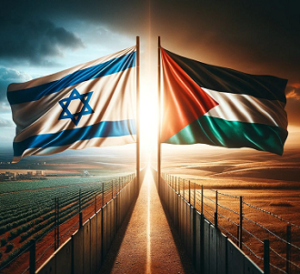 the Middle East, but there are still doubts about the real conditions of this agreement, as bad agreements only postpone hatreds and reorganize forces.
the Middle East, but there are still doubts about the real conditions of this agreement, as bad agreements only postpone hatreds and reorganize forces.
A ceasefire agreement only means a new military balance in the region, according to Israeli Prime Minister Binyamin Netanyahu, in practice with the United States calling the shots in the region and a retreat by Iran, the fall of a long dictatorship in Syria has contributed to this, but there will be peace without the reconstruction of humanitarian conditions in the region and in Yemen.
Before the October 7 attack by Hamas on Israeli territory, Iran was calling the shots in the region, including well-trained terrorists in the Gaza Strip, where Palestinians live under constant hostility from Israel, and this escalated after October 7.
We need to restore humanitarian conditions in the region, and understand that poverty in Yemen is one of the worst in the world, so a truce is not enough, we need to get to the root of the war.
In more than 40 years, few agreements have been successful and the crisis continues in the region. Since the Six Day War in 1967, agreements signed between Israel and Egypt, between Israel and Jordan, the central issue between Palestinians and Israelis has not been resolved, a direct agreement is needed.
The agreement, officially announced in Qatar by Prime Minister Mohammed bin Abdulrahman Al Thani, was reached between Hamas and Israeli negotiators, which is a good start because it is direct between the parties.
His words, “hopefully, this will be the last page,” are very significant, but one cannot underestimate the conditions in the medium and long term, in other words, re-establishing humanitarian conditions in the region and not thinking of Yemen as a separate chapter, it’s Houthis’ headquarters, they attacked a “vital” post in Israel yesterday, before the agreement.
Regarding the hostages who are due to be released soon, of the 251 captured by Hamas on October 7, 2023, 94 are believed to be still in Gaza, 60 are alive and 34 are dead.
It is now necessary to disarm the warring spirits, not only in the region, but throughout the planet.
Urgent: According to the Associated Press, Israel’s cabinet has not yet ratified the agreement, says Hamas has imposed “new” concessions: “The cabinet will not meet until the mediators notify Israel that Hamas has accepted all the items in the agreement,” said Netanyahu, fight, pray or think positive for PEACE.
The peace of those who love
I give you peace, but not as the world gives, says biblical wisdom (John 14:27), and what kind of peace this is, it is clearly not what we call peace between nations and peoples.
says biblical wisdom (John 14:27), and what kind of peace this is, it is clearly not what we call peace between nations and peoples.
We have already mentioned here, the so-called Iberian peace, in Sassanid (527-531), which became without return to war, and in dark periods for human peace it would be altruism or innocence to think of peace
Say what you think, maintain coherence in actions and words, justice and values are not only valid for your group or nation, they must be coherent values that are practical always and with everyone, independent of narratives and political and social polarities, it is necessary to have wisdom in what you say and prudence in what you do, And the pure release of feelings is not healthy and requires a dose of empathy and love from those who always do.
If you correct, correct for love, if you remain silent, be silent for love, it is often wise to be silent, and it does not always mean indifference or omission, it is also wisdom and prudence, the virtues that we have already discussed here and that were treated with propriety by the philosopher Philippa Foot.
Love contains all the virtues, but the word has been emptied in contemporaneity, it is even synonymous with hypocrisy and exclusion, evil is done and “I did it for love”, so it is necessary today to understand the other virtues that are embedded in true love.
There is also the appeal to ignorance, more than an appeal there is a lack of knowledge, misinformation is just a consequence of the lack of wisdom, and it is not just on one side of the narrative.
Modern narratives are in fashion, social media tools help to propagate them with quick reasoning and phrases, it is just a matter of denying what the Other says, it is the result of a long process of ignorance.
The peace we long for is the peace of love, but it must come containing the cardinal virtues: justice (the divine), prudence, temperance and courage (fortitude).
Why evil has spread
It’s true that evil is the absence of good, as Augustine of Hippo interpreted the essence of Being, which is good, and its absence as what produces it. In our previous posts, we also discussed the cardinal virtues, stating that in addition to Justice, which is relatively little thought of these days, there is prudence and wisdom that should accompany them.
Augustine of Hippo interpreted the essence of Being, which is good, and its absence as what produces it. In our previous posts, we also discussed the cardinal virtues, stating that in addition to Justice, which is relatively little thought of these days, there is prudence and wisdom that should accompany them.
The theological virtues: faith, hope and love should accompany them, but they too have been compromised by the absence of wisdom, rather than disinformation and post-truth, it is a time of ignorance and ignorance, even elementary school ignorance.
Power too, through structural values and authoritarian ways of exercising it, contributes to intolerance and contempt for knowledge and moral values.
Prudence and tolerance then become essential, not secondary virtues.
There is no hope, no love and no faith where intolerance and exclusion are part of everyday life and unfortunately this discourse is even on the lips of those who speak of Love, respect for the Other and inclusion.
his happens because relationships are dualistic and not trinitarian, there should be a third party included in addition to me and the Other, and this has already been discovered in quantum physics as a principle even of matter, so it’s not just divine, it’s reality itself.
At various times in our history, it has been through violence that empires and dictators have imposed their wills and ideologies, not without the consent of a large part of the population, which is why we remember bad education, whether through propaganda campaigns or through poor and ill-formed schooling, the two issues are linked.
We therefore need to be attentive to management at all levels, from our homes, neighborhoods and condominiums to power structures, small illegitimate actions, education for empathy, coexistence, cleanliness and even leisure must be observed and guided by managers and public bodies in order to preserve the common space and public goods.
The zeal for honesty, transparency and respectful dialogue between opinions that are not necessarily opposed, but different, albeit in completely divergent directions, should not be a reason for hatred and violence; dialogue is always possible.
Evil needs polarization, dualistic radicalization (in denial, there is a good sense in going to the root of a problem), but pure disagreement as a way of justifying and spreading violence is just an arrogant form of power.

